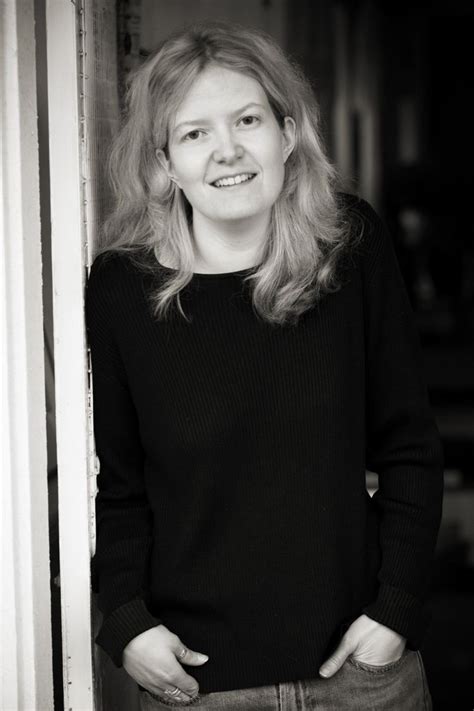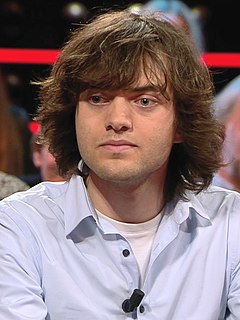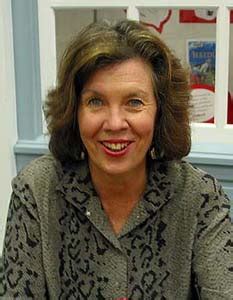A Quote by Ray Dalio
The expression I use: Pain + Reality = Progress. Whenever I would have a painful mistake, I started to view that as puzzles that would give me gems if I could solve the puzzle. So, it made me thoughtful - what should I do differently next time? That was the puzzle. And the gem was some principle for handling the same thing when it came along again, and then I would write it down. And by writing it down and referring to it, and also being able to show it to other people so that we could agree that that was a good way of handling that thing - that was very, very powerful.
Quote Topics
Able
Again
Agree
Along
Also
Being
Came
Could
Differently
Down
Down And
Expression
Gem
Gems
Give
Give Me
Good
Good Way
Handling
If I Could
Made
Me
Mistake
Next
Next Time
Other
Pain
Painful
People
Powerful
Principle
Progress
Puzzle
Puzzles
Reality
Referring
Same
Same Thing
Should
Should I
Show
Solve
Some
Started
Then
Thing
Thoughtful
Time
Use
Very
Very Powerful
View
Way
Whenever
Would
Write
Writing
Related Quotes
I learned that everyone makes mistakes and has weaknesses and that one of the most important things that differentiates people is their approach to handling them. I learned that there is an incredible beauty to mistakes, because embedded in each mistake is a puzzle, and a gem that I could get if I solved it, i.e. a principle that I could use to reduce my mistakes in the future.
Could you not give me some sign, or tell me something about you that never changes, or some other way to know you, or thing to know you by?" — "No, Curdie: that would be to keep you from knowing me. You must know me in quite another way from that. It would not be the least use to you or me either if I were to make you know me in that way. It would be but to know the sign of me — not to know me myself.
I would go with my husband to the tailors where he gets his shirts made, and I would watch the bespoke process. I would ask them, "Would you be able to make that for me?" And they would always say, "Well, yes, but no." They were very French about it. I decided I would just do it for myself. And I started doing that. Then other people would notice, and want it. So I started doing things for friends, little pieces, and my own line grew that way.
He was magnificent; very clever with outstanding technique. He could pass the ball over five yards or fifty; he could see things to set up other people; he could shoot and he could score goals. If you gave me Paul Scholes and ten others, I would be happy. I would tell them to give him the ball and then we would have a good team.
I didn't learn how to read and write until pretty late, and it was this very mysterious, incredible thing, like driving, that I didn't get to do. And then I started writing things down on little scraps of paper and I would hide them. I would write the year on them and then I would stuff them in a drawer somewhere. But I didn't start to really read until about eight. I'm dyslexic, so it took a long time.
Stop trying to figure it out. I love puzzles, but when I'm done putting together a puzzle, I feel accomplished, and then I wonder, "What's next?" Then I go start another puzzle. Life is a puzzle that I feel like we'll never fully put together. And I like that because, ultimately, I don't want to have life figured out and then wonder, "What's next?" That seems scary to me.
I love the me I am with him. I’m the girl who has Dave. I’m Lauren, Dave’s girlfriend. I’m someone better than Lauren Smith, who no one noticed till Dave came along. The thing is, that girl isn’t me and I know it. But when I’m with him, I feel like I could be her. That if something in me was just–I don’t know, shifted a little or something, smoothed down–people would think of me the way they think of Dave, and everything would always be perfect. I would be perfect.
If everybody would agree that their current reality is A reality, and that what we essentially share is our capacity for constructing a reality, then perhaps we could all agree on a meta-agreement for computing a reality that would mean survival and dignity for everyone on the planet, rather than each group being sold on a particular way of doing things.
I would never ever, ever, ever, ever do it again [All My Children]. It was the scariest thing I've ever done. I have such respect for people who do it, who can do it. What happened was they caught me at a good moment. I could use the money and this came along and it was with Susan and I thought, "Susan Lucci. I have to do this.
The work saved me. I clung to it like flotsam in a boiling sea. It was the only solitary sport that I ever played, or was any good at. It felt natural to sit at my computer and type and type some more. For entire minutes, while writing, I could forget the godawful thing that had happened. I could forget that nothing really mattered anymore. Perhaps, if I set my sights low, I could care again about some small thing. I would type a word. One word. Then another. I started to care about the words, then entire sentences.

































